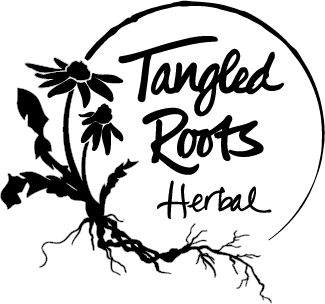Physical health is a multifaceted concept encompassing various bodily functions and systems, all of which are essential for maintaining a state of well-being and optimal performance. By understanding these different aspects and how herbs can support them, we can take a more targeted and effective approach to enhancing physical health. Here's a deeper dive into the key body functions and how certain herbs may assist and support them.
1. Digestive System
Function: The digestive system breaks down food into nutrients, which the body uses for energy, growth, and cell repair. It's also crucial for eliminating waste.
Herbal Support:
- Ginger: Known for its anti-inflammatory and digestive properties, it can help alleviate nausea and promote healthy digestion.
- Peppermint: Often used to soothe digestive issues, peppermint can relieve symptoms of IBS and indigestion.
- Chamomile: This herb is traditionally used for various gastrointestinal conditions, including indigestion, gas, and vomiting.
2. Circulatory System
Function: The circulatory system delivers oxygen and nutrients to cells and removes waste products. It's vital for sustaining life and ensuring all bodily functions are performed efficiently.
Herbal Support:
- Garlic: Known for its cardiovascular benefits, garlic can help lower blood pressure and cholesterol levels.
- Hawthorn: Often used to support heart health, hawthorn can improve circulation and lower blood pressure.
- Ginkgo Biloba: This herb is known for improving blood circulation and enhancing cognitive function.
3. Immune System
Function: The immune system defends against pathogens and disease. It's the body's primary means of staying healthy in the face of infections.
Herbal Support:
- Echinacea: Often used to prevent or treat the common cold, Echinacea is known for its immune-boosting properties.
- Elderberry: Rich in antioxidants, elderberry is commonly used to boost the immune system, especially during colds and flu.
- Astragalus: This herb is traditionally used to strengthen the body's resistance to illness.
4. Respiratory System
Function: The respiratory system is responsible for taking in oxygen and expelling carbon dioxide. It's essential for breathing and maintaining healthy lung function.
Herbal Support:
- Mullein: Often used in herbal remedies for its expectorant properties, helping to clear the lungs of mucus.
- Thyme: Known for its antiseptic properties, thyme can help fight respiratory infections.
- Licorice Root: This herb can soothe the throat, reduce irritation, and has expectorant qualities.
5. Nervous System
Function: The nervous system controls both voluntary action like walking and involuntary actions like breathing, and it sends signals to different parts of the body.
Herbal Support:
- Lavender: Known for its calming effects, lavender can help alleviate stress and improve sleep.
- Valerian Root: Often used as a sleep aid, this herb can help reduce anxiety and improve the quality of rest.
- Gotu Kola: Renowned for its potential to improve cognitive functions and promote wound healing. It's often utilized for its anti-inflammatory and antioxidant properties, contributing to skin health, increased circulation, and reduced anxiety.
Safety and Considerations
While herbs can offer significant health benefits, they're not without risks. It's important to:
- Consult Healthcare Providers: Always talk to a healthcare professional before starting any new herbal regimen, especially if you have pre-existing conditions or are taking other medications.
- Quality and Purity: Ensure you're using high-quality products from reputable sources (like us!) to avoid contaminants and ensure potency.
- Dosage: Follow recommended dosages and instructions for use to avoid potential side effects.
Herbs have been used for centuries to support health and well-being. By understanding the specific functions they can support and the right way to use them, you can significantly enhance your physical health. Remember, though, herbs are part of a holistic approach to health and are most effective when combined with a healthy lifestyle, including a balanced diet, regular exercise, and sufficient rest.


